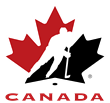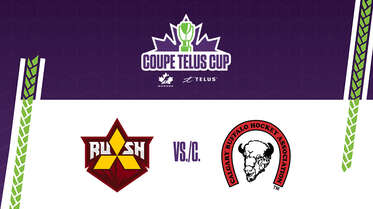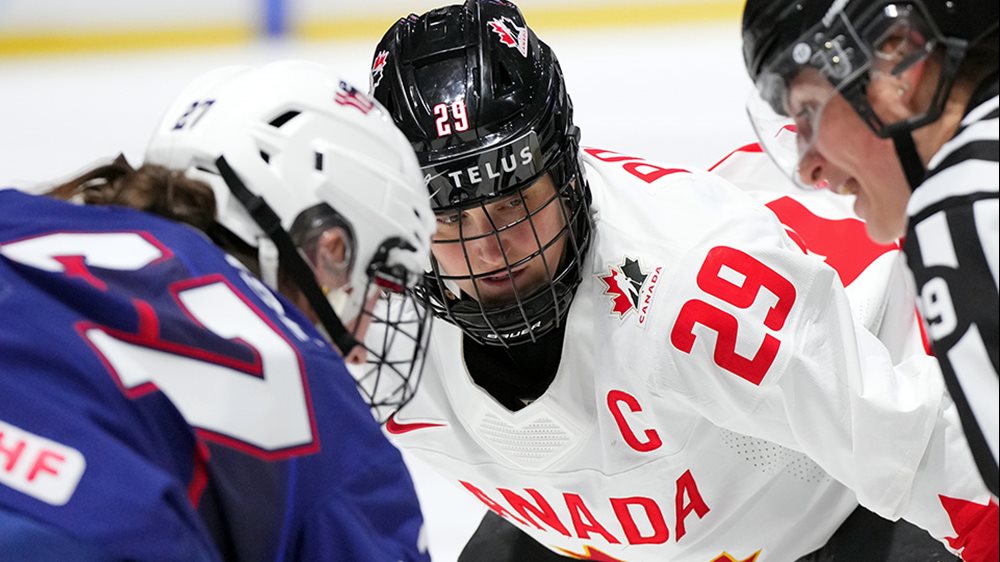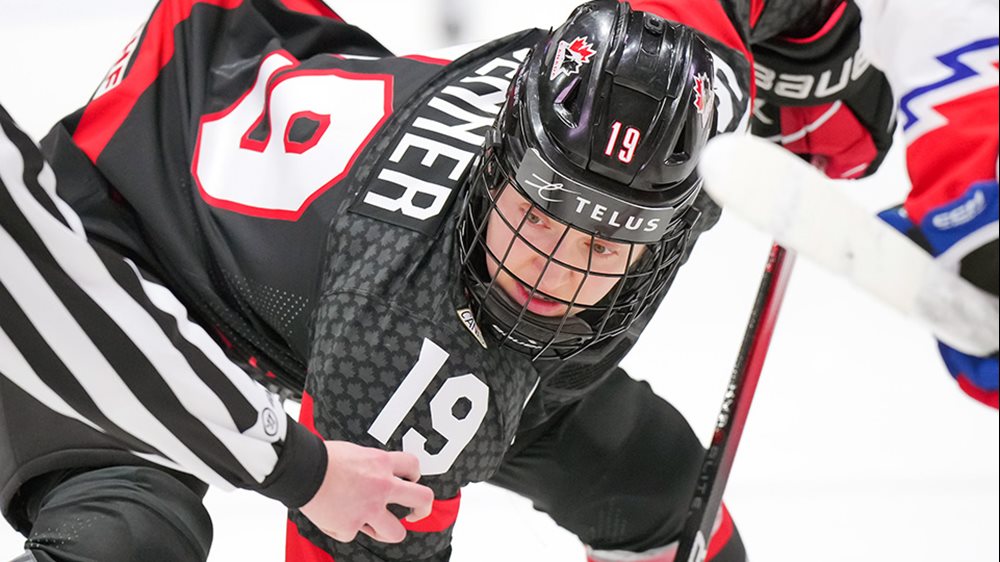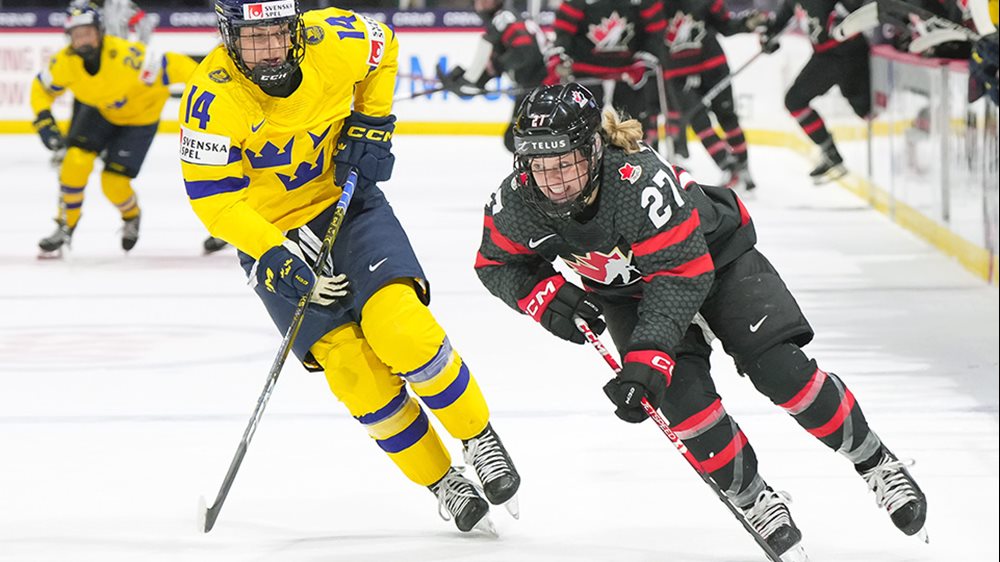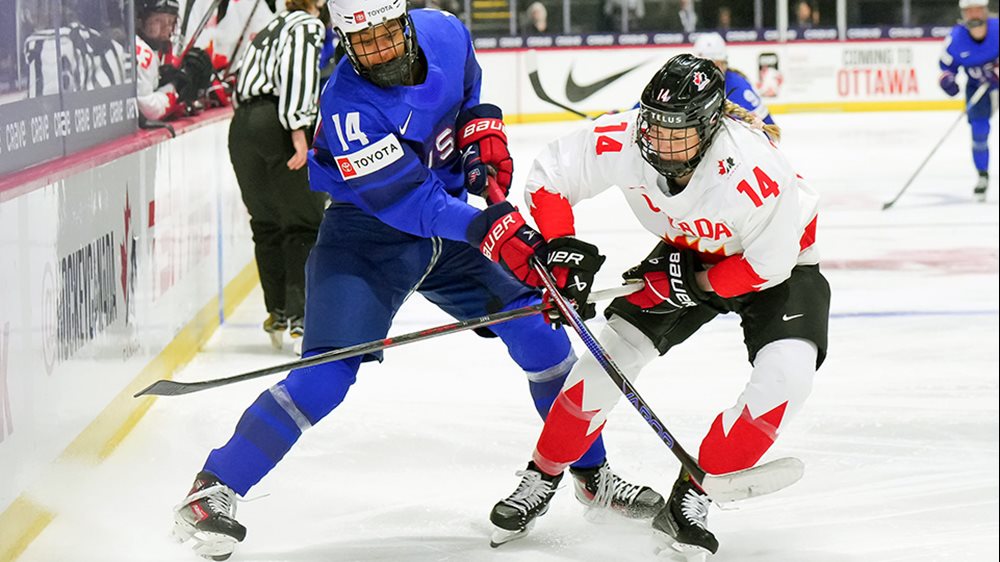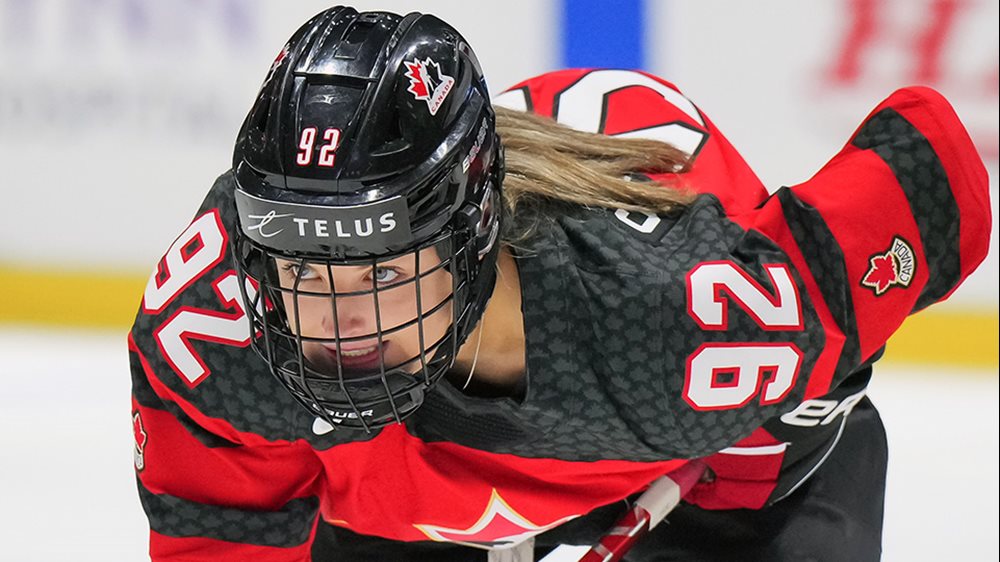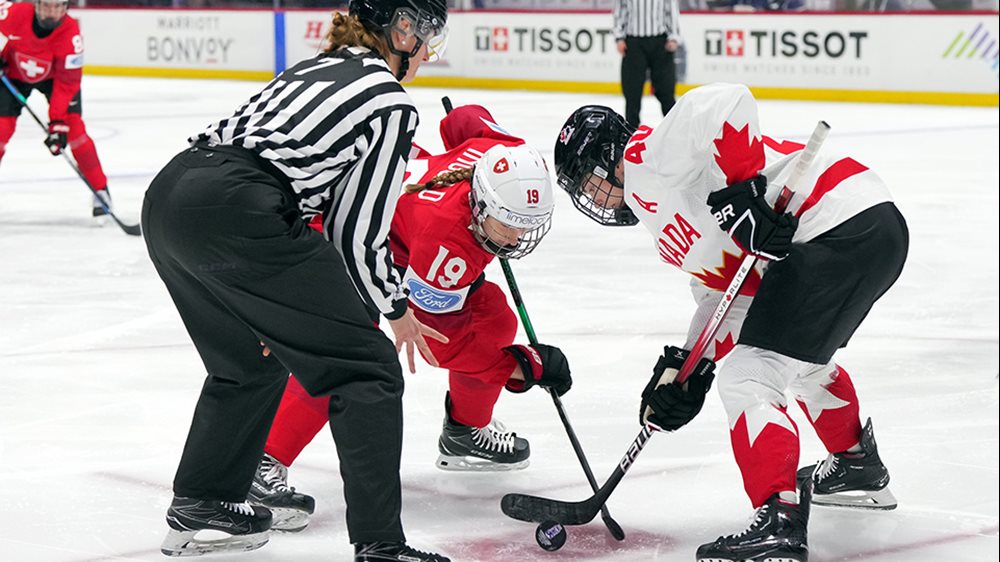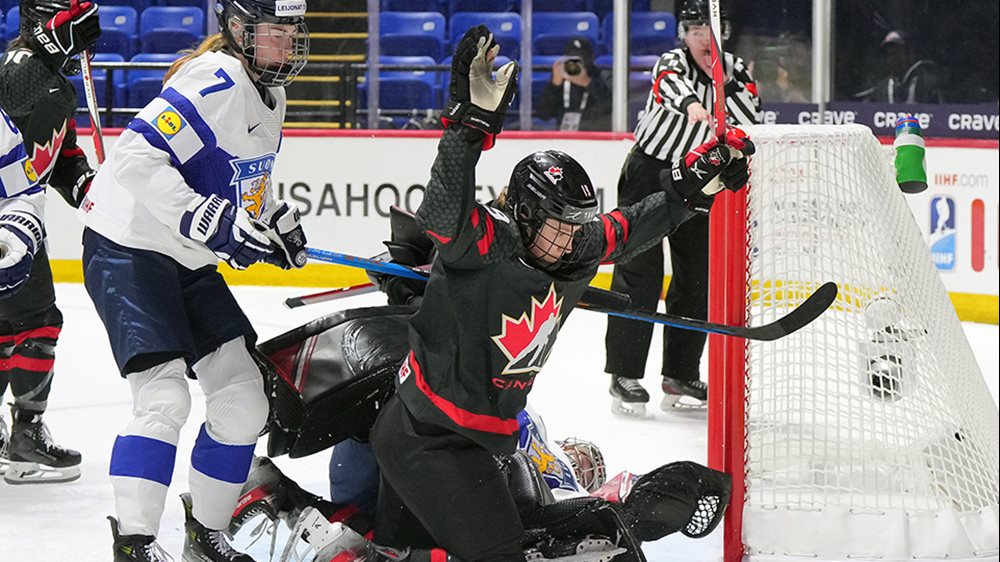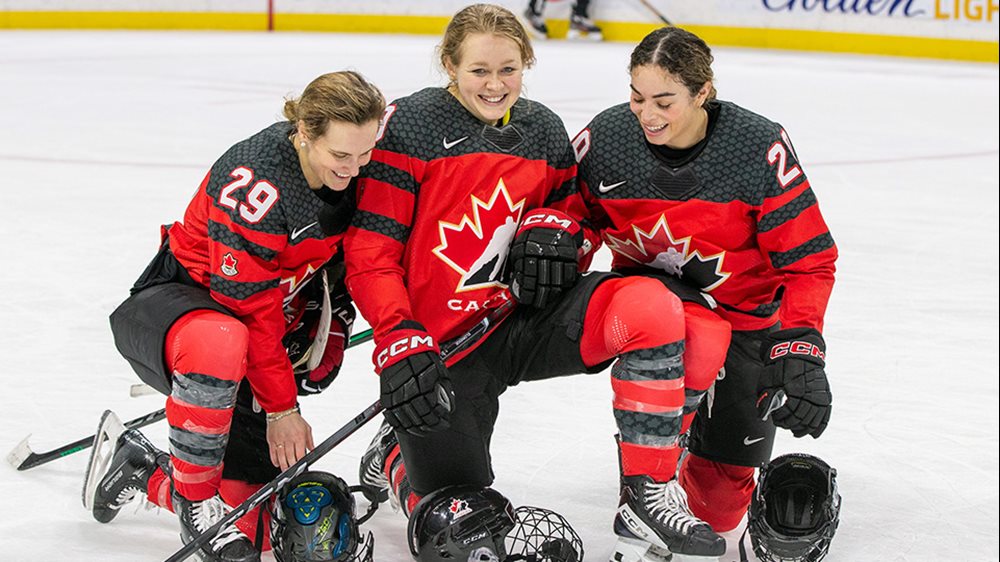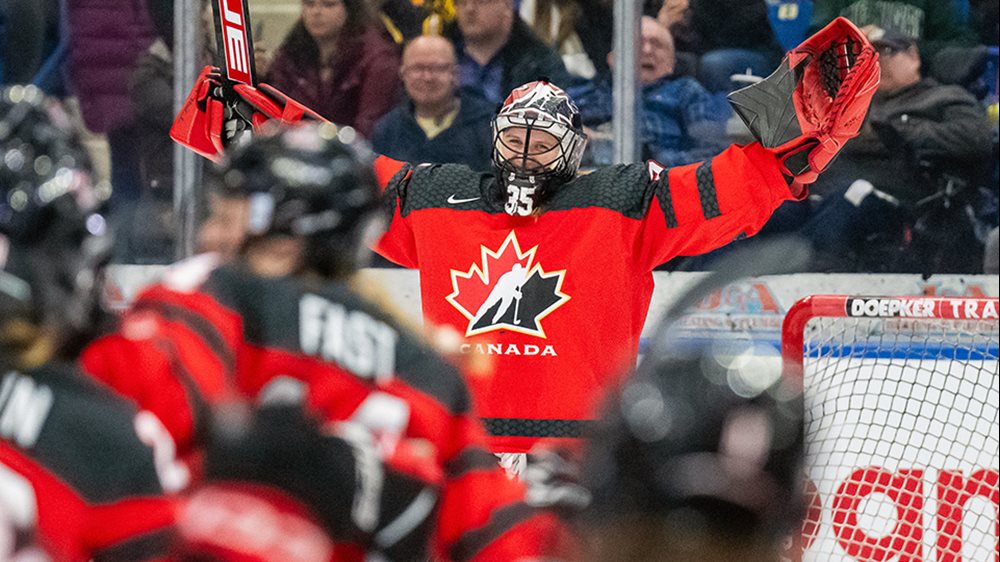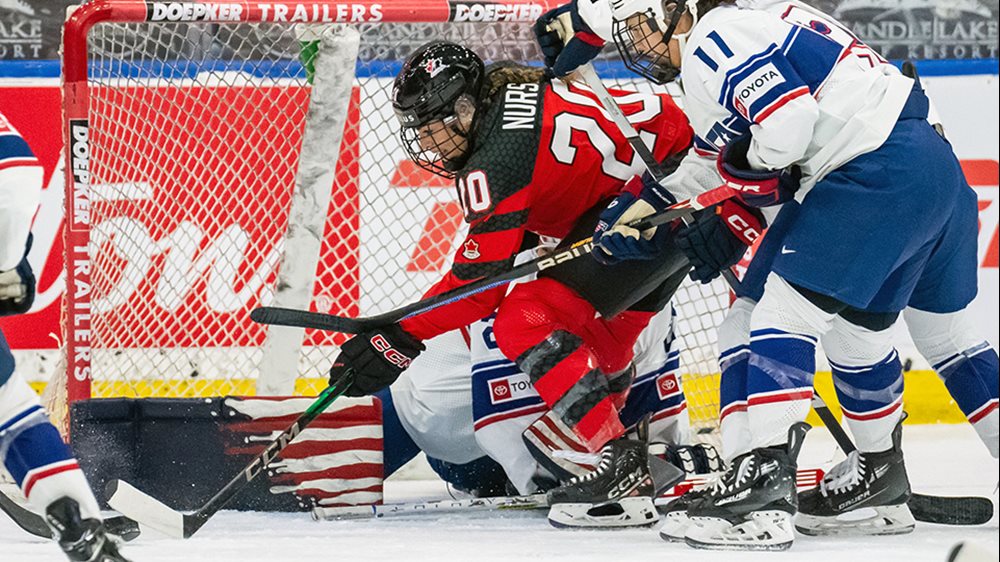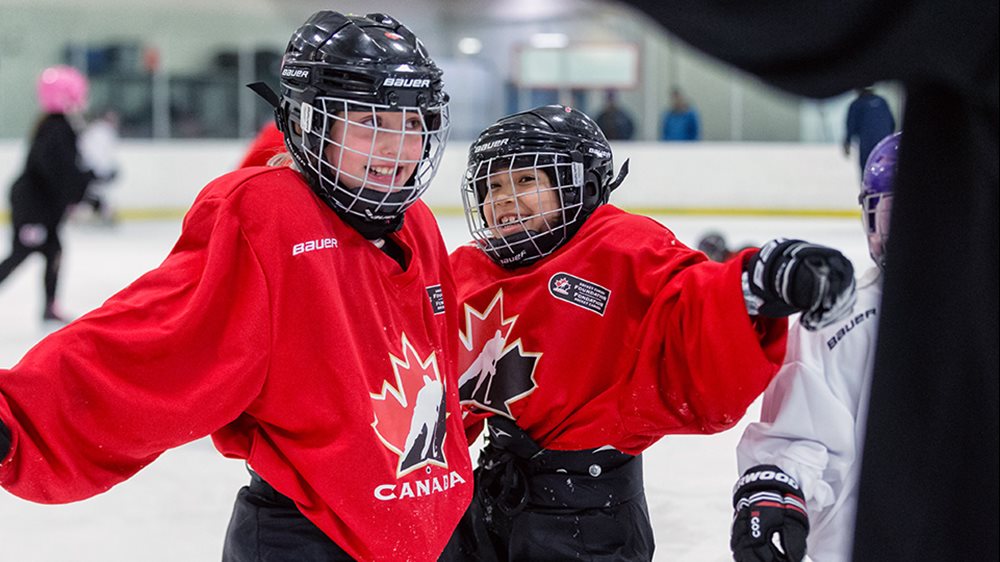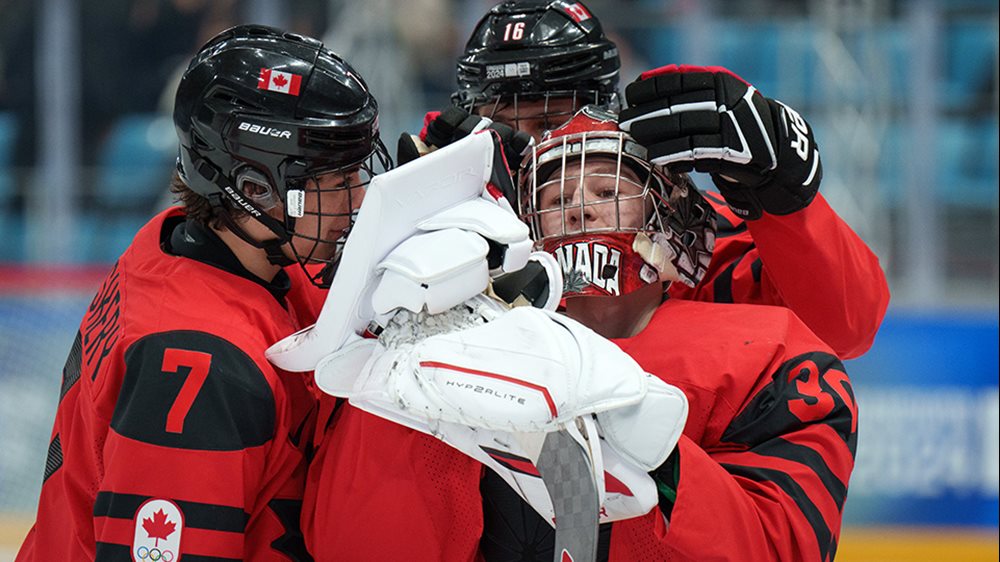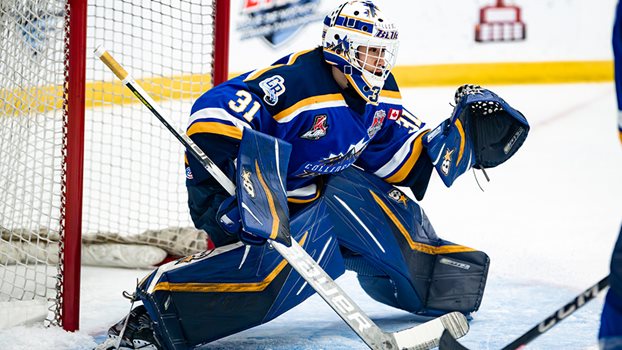
Pak sets himself up for success
Capping off his final junior hockey season with the Collingwood Blues at the Centennial Cup, Noah Pak has a bright future – on and off the ice
For Collingwood Blues goaltender Noah Pak, playing in the blue paint wasn’t always his first choice. But that changed after he reluctantly strapped on the pads for the first time.
“No one wanted to play goalie in the first game of the year, so my dad volunteered me to do it,” Pak recalls. “I was upset about it, crying as I put on the pads, but I finished the game, I really enjoyed it and I was really glad my dad put me in there.”
It’s a decision that has been fruitful for Pak; the 19-year-old has developed into one of Canada’s top junior A netminders this season. Leading the Ontario Junior Hockey League (OJHL) with 16 wins, along with a sparkling 1.37 goals-against average and .947 save percentage, Pak backstopped the defensively sound Blues to their first-ever OJHL championship banner to qualify for the Centennial Cup .
“It’s been a dream for a lot of our players and our goal at the beginning of the year, to earn an opportunity to compete for a national championship,” Pak says about the National Junior A Championship. “I think we’re prepared and ready for it with the team around us, but also trying to soak it all in and really enjoy the experience at the national stage.”
The Oakville, Ont., native was named OJHL playoff MVP for his stellar play, but as much as he is getting the spotlight for his individual performance, he credits the team around him for pushing him to be the best version of himself, on and off the ice.
“The team and the culture in Collingwood have helped me develop as a player on the ice and as a person off the ice,” Pak says. “With our mindset, there was never a doubt in winning the championship, and with all those individual stats, they’re great, but at the end of the day, we’re all here to win as a team.”
Looking forward to the future
Off the ice, Pak is also preparing himself for what comes next. Committed to Yale University beginning in the fall, Pak understands the importance of keeping his career opportunities open, whether that is on the ice or beyond.
After showcasing his abilities at the Cottage Cup in Collingwood early in the pandemic-shortened 2021-22 season, Pak didn’t hesitate to commit to the Bulldogs when the opportunity arose.
“It was a no-brainer for me, with the program they run in terms of hockey but also on the education side of things, it’s second to none,” Pak says. “I’m looking out for my future once I’m finally done with hockey. It was definitely a surreal time for me and especially for my parents with everything that they’ve done for me, supporting me over the years.”
Although he doesn’t need to declare a major in his first year at Yale, Pak is interested in business and economics, but wants to keep his options open, whether that’s in hockey or school. Regardless of what path he chooses, Pak is thankful for all the support he’s received from his parents over the years.
“I wouldn’t be where I am without my parents,” he says. “They’ve put in countless hours driving and preparing me for games, the amount of money they’ve put into my gear and training, so whenever I kind of look back at my achievements, I’m always grateful.”
Pak’s parents, Dennis and Nancy, have always known their son is capable of looking after himself. Whether it was his commitment to preparation before games, his attitude to overcome challenges or his decision to go the NCAA route, they understood what hockey meant to him and the family’s bond strengthened because of it.
“His determination always stood out to us,” Dennis says. “He’s put in the
work into his training, he was determined to develop close to home in
Collingwood, and we’ve adapted our lifestyle around his hockey schedule. As
long as he’s happy, we’ll support his decisions and be there for him.”
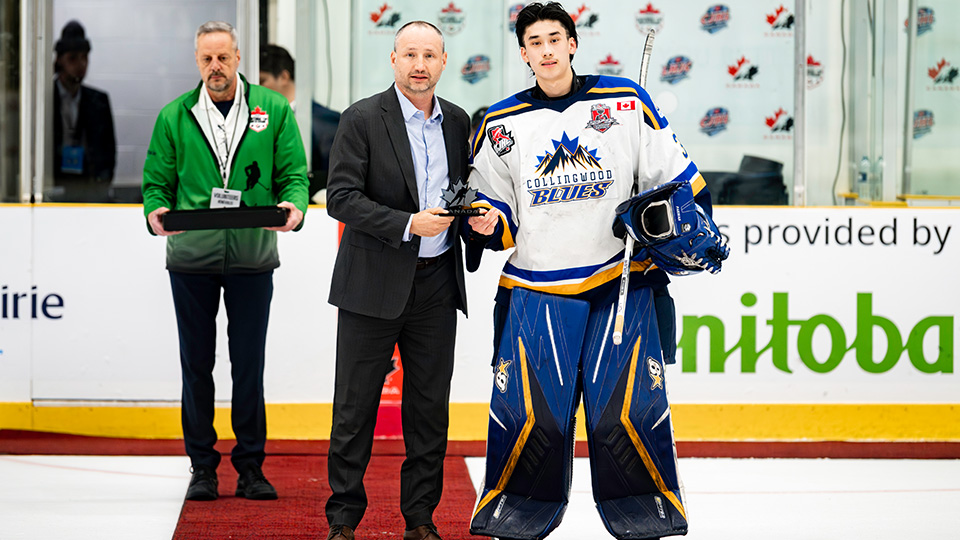 As Pak takes the next step into his hockey career, at the Centennial Cup
this weekend and into a busy summer, he is understanding the importance of
becoming a leader in hockey as well. Growing up in Oakville, he has seen the
diversity of hockey grow and hopes that the trend continues.
As Pak takes the next step into his hockey career, at the Centennial Cup
this weekend and into a busy summer, he is understanding the importance of
becoming a leader in hockey as well. Growing up in Oakville, he has seen the
diversity of hockey grow and hopes that the trend continues.
“Hockey is a sport for everyone,” Pak says, who played AAA with the Oakville Rangers. “I’ve been lucky enough that my parents supported the decisions I made for myself and I think anyone can try to strap on the pads or lace on skates so if I can inspire even just one kid to pursue hockey as a career or even just as a hobby, that’s great because this is the best sport there is.”
While Pak is focused on bringing a national title back to Collingwood, he is also making sure he and his teammates are soaking in the experience together before they move onto the next stage of their lives.
“I look forward to the next chapter of my career and my life, and I want to be able to succeed at the next level as well,” Pak says. “I want to do great things at school and with the Bulldogs program, but I’m living in the moment and we’ll see where hockey takes me.”
For more information: |
- <
- >
